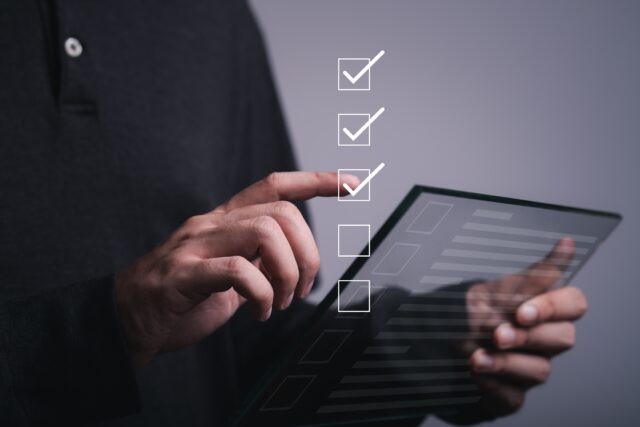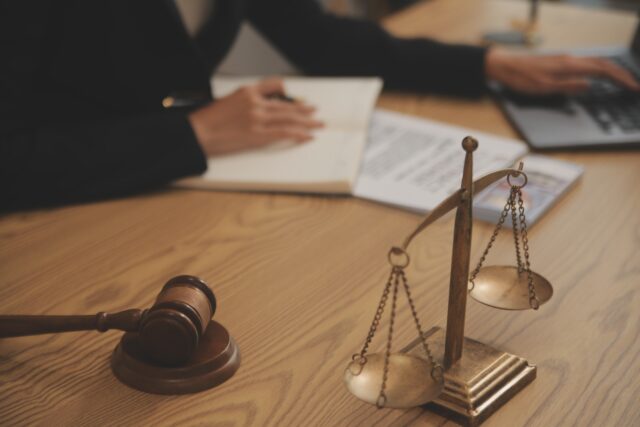Determining how to choose the right personal injury lawyer for you —involves research, asking the right questions, and trusting your instincts. The unfortunate truth is that not all personal injury lawyers are built alike.
Like doctors or mechanics, finding a reputable personal injury attorney in Fort Smith involves more work than searching the Internet and calling the first sponsored advertisement at the top of the page. While the sponsored firm may be exactly who you’re looking for, you won’t honestly know without considering these factors before retaining legal counsel.
Fort Smith Personal Injury Guide
- Identifying Your Legal Needs
- Make a List of Relevant Questions to Ask About Your Personal Injury Case
- Consult With Multiple Personal Injury Law Firms
- Critical Things to Research Before Hiring a Personal Injury Lawyer
- What the Right Personal Injury Lawyer Will Provide for You
- There is A Personal Injury Lawyer Waiting For Your Call
Identifying Your Legal Needs
Before hiring a personal injury lawyer, identify your legal needs. Personal injury attorneys work with various accident victims across numerous accident types. Typical areas of personal injury law are as follows:
- Motor vehicle accidents (auto, truck, train, boat, aviation)
- Pedestrian accidents
- Bicycle accidents
- Motorcycle accidents
- Medical Malpractice
- Birth injuries
- Nursing home abuse
- Premises liability (injured or killed on someone’s property due to their negligence)
- Dog bites
- Product liability (defective product injuries and death)
- Workplace accidents
- Construction accidents
- Negligence
- Wrongful death
- Intentional torts (murder, assault and battery)
- Defamation (libel and slander)
Some firms may have skilled lawyers representing these areas individually, while others handle them all, regardless of knowledge or experience. Would you want a law firm handling your intentional tort case if they’ve never handled criminal cases or have zero trial experience? The answer is a firm —no.
Asking questions about case experience and focused personal law areas will help you determine if the firm is suitable to represent you in the area where you need representation.
Make a List of Relevant Questions to Ask About Your Personal Injury Case

Before consulting with personal injury law firms, be prepared with a list of questions relevant to the circumstances of your case. Understanding how a law firm will represent your interests is vital in trusting them to secure financial compensation for your losses and damages.
While some questions may be specific to the details of your personal injury claim, here are some helpful questions for assessing a law firm’s value to you:
- How much do you charge for your services?
- Who will personally be representing my case from your firm?
- How long have you been practicing personal injury law?
- Have you handled personal injury cases like mine before?
- What issues or challenges do you see with my case?
- How much is my personal injury claim worth?
- How long will my claim take to settle?
- How much time will you spend on my case?
- What happens if the insurance company refuses to settle?
- Do you have trial experience?
- What happens if I don’t win —will I be responsible for any fees or costs?
- How often will you communicate with me about my case?
- What percentage of your cases are referrals from other attorneys?
Make notes on how individual firms respond to these questions, which are meant to help you determine how to choose the right personal injury lawyer for you. Remember to trust your instincts.
Do their answers feel informed and sincere, or are you dealing with a slimy car salesperson vibe when they’re answering? You may encounter both. Be cautious and do your homework.
Consult With Multiple Personal Injury Law Firms
Take advantage of the free consultations many firms offer to learn how to choose the right personal injury lawyer for you. Like a hiring manager interviewing employees, you are interviewing your attorney to determine if they are the best professional for the job.
No one only interviews one applicant before making critical hiring decisions, especially when the job is relatively important. You should exercise that same caution when selecting an attorney.
While there is no magical number of law firms you should consult with before deciding, it’s best to consider a minimum of three before committing to one. Occasionally, a firm fits perfectly immediately and doesn’t warrant further search. However, most should do their due diligence and interview multiple prospects.
Critical Things to Research Before Hiring a Personal Injury Lawyer
Personal injury attorneys are here to serve the general public by protecting their legal rights, safeguarding them against shady insurance companies, and obtaining financial compensation for their client’s financial losses and other damages.
To ensure you’re hiring the best one to represent your personal injury case, here are some critical things to research before selecting your firm:
Their Credentials and Reputation
Research the firm and the attorney who will be assigned to your case. Check out their legal background, such as education, certifications, and professional associations they belong to. Check for complaints and disciplinary actions on their records. Places you can check the credentials and reputation of a personal injury lawyer are:
- State Bar Association: Visit the State Bar Association’s directory to confirm the lawyer is licensed and in good standing. You may also locate disciplinary records to understand an attorney’s reputation better.
- Better Business Bureau (BBB): Search the Better Business Bureau Lawyer database for positive and negative reports of the local personal injury lawyers you’re considering hiring.
- Online Reviews: Read reviews to see what past clients say about the law firm and attorney. You may encounter less favorable reviews that are irrelevant sometimes. However, a history of bad reviews is telling and can be a sign to search elsewhere.
- Review Sites: Several review sites, such as Yelp, Facebook, Google, and Thumbtack, include ratings and reviews for personal injury lawyers.
Word-of-mouth referrals are an often-overlooked way of finding the right personal injury lawyer for you. Ask your family, friends, coworkers, or others whose word-of-mouth referrals you value about their experience with a personal injury attorney.
Their Resources and Network
A personal injury lawyer is only as good as their team, and an experienced one should have an all-star line-up. Experts and other professionals your attorney should have access to (depending on their areas of practice) include:
- Accident reconstruction specialists
- Economists
- Engineering experts
- Medical experts (cardiologists, OBGYN, neurologists, oncologists, etc.)
- Occupational therapists
- Mental health specialists (psychiatrist, psychologist, therapist, social workers)
- Vocational rehabilitation therapists
- Speech and language therapists
- Audiologists
- Product defect experts
Sometimes, personal injury law firms also have excellent referrals to doctors and rehabilitation specialists who work with accident victims using different billing terms than others. They may be more lenient about debt because they understand they will be paid when a case settles.
These referrals help keep medical bills from going to collections. There is no need to send them there when the doctors know they will be paid in full later because they frequently work with your lawyers to help people get better and recover what they are entitled to.
Their Past Case Results
When interviewing prospective personal injury lawyers, ask about the outcomes of previous cases similar to yours. An attorney with a history of high settlements, especially concerning cases similar to yours, can be a good indicator of their experience and capability.
Their Trial Experience
While most personal injury cases settle out of the courtroom, your attorney should have trial experience. If your personal injury case goes to trial, you need someone skilled in litigation and courtroom proceedings.
Their Fee Structure
Most personal injury lawyers work on contingency, meaning they get paid a percentage of the final settlement or verdict. Understanding their contingency fee arrangement, including additional costs or out-of-pocket expenses, is critical before retaining their services.
Some personal injury attorneys charge an additional fee if your injury claim turns into a lawsuit and subsequent trial.
Their Communication Skills
The right personal injury lawyer should communicate well, inform you about your case, and make complicated legal concepts understandable. During initial consultations and interviews, gauge how well they listen and respond to your questions and concerns.
Their Personal Compatibility
Your comfort level with the personal injury lawyer you select is critical to the overall flow of your case. You should feel confident in their abilities, comfortable discussing all aspects of your case, and have peace of mind that your case is handled with the care and professionalism it deserves.
What the Right Personal Injury Lawyer Will Provide for You

The right personal injury lawyer will exercise care and compassion when handling client communications and the details of your case. They will view you as a person, not a paycheck. Through your interviewing process, your instincts should alert you to differences in tones and responses.
A good attorney will sound sincere because they are passionate about bringing financial justice to accident victims who may otherwise be neglected a second time by the system. They will also provide:
A Comprehensive Case Investigation
Personal injury lawyers will thoroughly investigate your accident claim by gathering evidence, interviewing witnesses, working with accident reconstruction specialists, and consulting with experts to determine your injuries and damages.
Protection Against Insurance Company Tactics
One of the more challenging parts of navigating accident claims is dealing with the insurance companies. They will do whatever it takes to deny liability so they are not financially responsible for an injury or accident claim. Some of these tactics include:
- Acting like your best friend to disarm you and gain your trust.
- Convincing you to give a recorded statement so they can use it to find any statements they can use to incriminate you and deny the full or partial liability of your claim.
- Stalking your social media accounts for posts they can use to discredit your injury claims.
- Trying to get you to settle before you are done being treated for your injuries.
- Pressuring you to accept their first lowball offer.
- Convincing you that you do not need a personal injury lawyer.
Once you retain legal counsel, all communications will be directed to them. The insurance companies will no longer be allowed to contact, pressure, or harass you after obtaining a lawyer.
A Comprehensive Claim Value
Insurance companies will try to get away with paying the bare minimum. However, an experienced personal injury lawyer will comprehensively evaluate damages for your claim.
This will include calculating economic losses and non-economic damages incurred due to your accident. Some examples of damages personal injury attorneys recover in accident claims include:
- Medical Expenses —emergency services, hospital stays, primary care, surgery, medical devices, prescription medications, and all other medical expenses, including future ones.
- Rehabilitation Costs —physical therapy, chiropractic care, occupation therapy, vocational rehabilitation therapy, massage, and all other rehabilitation services.
- Disability Expenses —transportation mobility modifications and home modifications such as wheelchair ramps, chair lifts, lowered counters and sinks, and wider doorways.
- Income Losses —earnings, benefits like medical and retirement, and the potential for commissions, bonuses, and promotions. Diminished earning capacity and future earnings are also sometimes considered depending on the severity of injuries.
- Property Damages —Vehicle repairs and damages to all personal property, including cell phones, portable electronic devices, bicycles, scooters, helmets, clothing, glasses, jewelry, fences, homes, buildings, sprinkler systems, mailboxes, or any other property damaged in an accident.
- Household Services —hired assistance for daily tasks, including cooking, housecleaning, lawn care, childcare, grocery, prescription, and meal delivery.
- Wrongful Death Damages —loss of consortium, loss of financial support, loss of guidance, loss of intimacy, loss of spousal relations, loss of activities, loss of inheritance, and any other damages associated with wrongful death.
Receipts, invoices, billing reports, bank statements, and post-accident injury journals can help prove damages in your personal injury claim. Your lawyer will also obtain police reports, expert testimony, and eyewitness accountings to substantiate your right to compensation.
Negotiation Skills
Insurance companies are notorious for pressuring unrepresented accident victims to settle for lowball offers. They bank on knowing that most injured parties will not negotiate out of fear or lack of know-how, and they get away with undervaluing claims.
However, a personal injury lawyer is a skilled negotiator who demands what is fair and refuses to back down. Having a confident negotiator who will fight for your right to recover financial losses and other damages incurred in an accident provides victims a better chance of higher settlement offers.
Peace of Mind
Finally, the right personal lawyer will provide peace of mind. They will answer the questions sincerely, check off all boxes, and provide you with a sound understanding that they know what they are doing and can secure fair financial compensation for your accident injury claim. They will also ensure clear and open communication with you.
There is A Personal Injury Lawyer Waiting For Your Call
Schedule a free consultation with a personal injury lawyer in your area, to determine if the firm is the right fit for you. Personal injury lawyers are dedicated to providing successful results for their clients and can show you similar case and trial histories. Don’t delay, call today.

